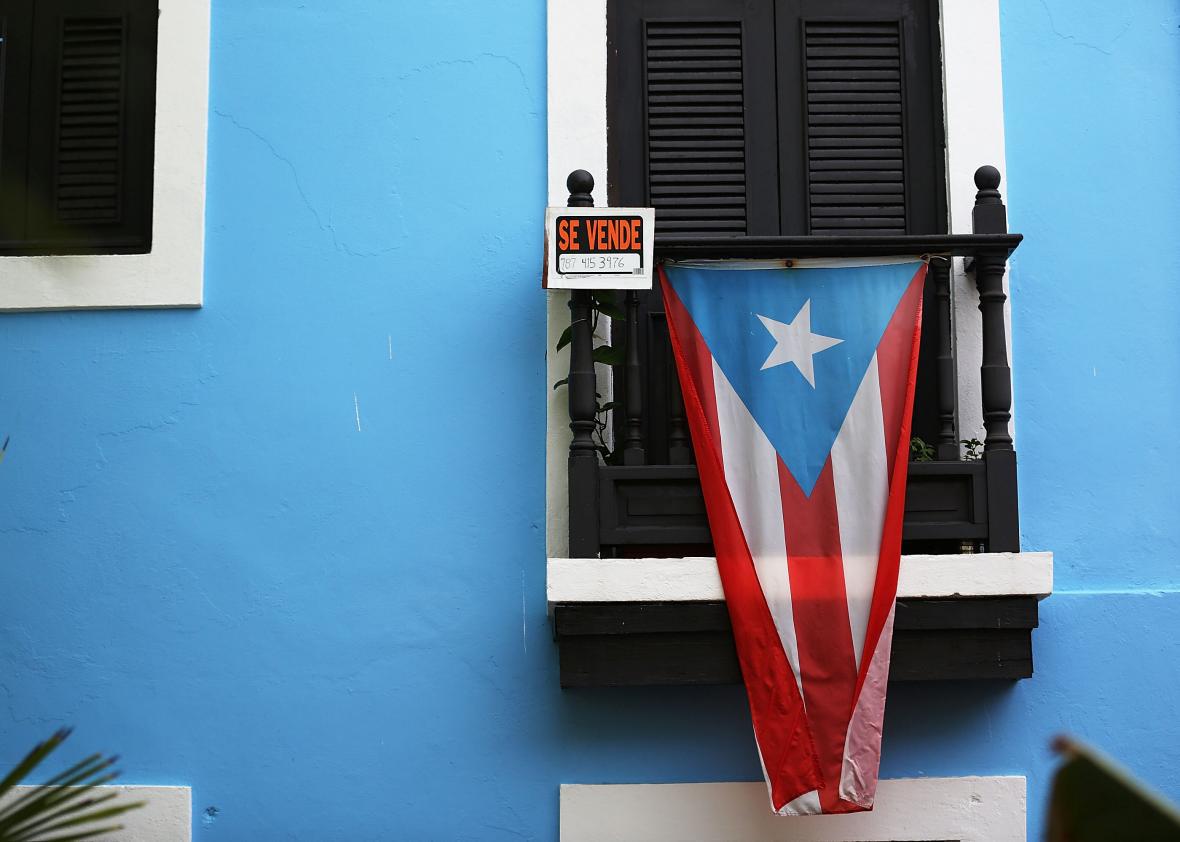On Tuesday, U.S. District Judge Juan Pérez-Giménez ruled that the Supreme Court’s decision in Obergefell v. Hodges does not apply to Puerto Rico and that, as a result, the territory’s same-sex marriage ban remains in force. Merely as a matter of black letter law, this decision is incredibly inane and plainly wrong, and the 1st Circuit Court of Appeals will reverse it very quickly. Pérez-Giménez’s judgment is so clearly erroneous, in fact, and so obviously destined for speedy reversal, that it is almost not worth discussing. But since the good judge took the time to write this imaginative 10-page opinion, let’s take a moment to walk through the reasons why it is so asinine.
Pérez-Giménez rests his conclusion on the fact that Puerto Rico is an “unincorporated territory,” and that, as such, the United States Constitution does not apply equally to the island as it does to the states. Even this basic premise is questionable. As the Supreme Court recently noted, Puerto Rico is really something more than an unincorporated territory: At the very least, it is a semi-sovereign territory that functions like a state. In 1953, America told the United Nations that Puerto Rico was sovereign; in 2008, a federal judge ruled that it was an incorporated territory, subject to the same constitutional rights and limitations as any state.
Even if Puerto Rico were a true unincorporated territory, however, Pérez-Giménez’s analysis would fail, because the Supreme Court has repeatedly held that the exact constitutional provisions which led to Obergefell apply equally to the island. Obergefell, and United States v. Windsor before it, held that the Due Process Clauses, along with the Equal Protection Clause, grant same-sex couples the right to wed. Decades ago, the Supreme Court unequivocally ruled that the Due Process Clause and the Equal Protection guarantee apply with full force to Puerto Rico. Since these provisions were the basis of Obergefell, it is simply bizarre to say that Obergefell doesn’t apply to the island.
But suppose, for a moment, that this history does not exist, and Puerto Rico is nothing more than an unincorporated territory not fully bound by the Due Process and Equal Protection Clauses. Even then, Pérez-Giménez would be incorrect. To argue that Obergefell is not binding on Puerto Rico, the judge cites the Insular Cases, a series of explicitly racist opinions from 1901 which held that territories populated by “alien races” don’t merit full constitutional protections. The Insular Cases have been questioned and eroded by more recent decisions, but technically they are still on the books, so we’ll give Pérez-Giménez that point. Yet even in the Insular Cases, the Supreme Court ruled that the Constitution guarantees “fundamental rights” to the territories and their citizens. In his Obergefell opinion, Justice Anthony Kennedy described same-sex marriage as a constitutional “fundamental right” no fewer than ten times. That means the right must extend throughout the entire country—to states and territories alike.
Fun as it is to mock Pérez-Giménez’s rather pathetic legal illogic, I suspect there is something else going on here. When the judge ruled against marriage equality in 2014, he displayed palpable animus toward gay couples. (If same-sex marriage were legalized, he wrote, “the marriage of fathers and daughters” might be permitted as well.) After Obergefell, the 1st Circuit vacated Pérez-Giménez’s decisions and essentially ordered him to reverse himself, stating: “We agree … that the ban is unconstitutional.” But instead of following the 1st Circuit’s clear orders, Pérez-Giménez went rogue for one final, wild ride on the anti-gay runaway caboose. Rest assured that, in the very near future, the 1st Circuit will reverse Pérez-Giménez for good, and this entire episode will be little more than a strange, distant memory.
